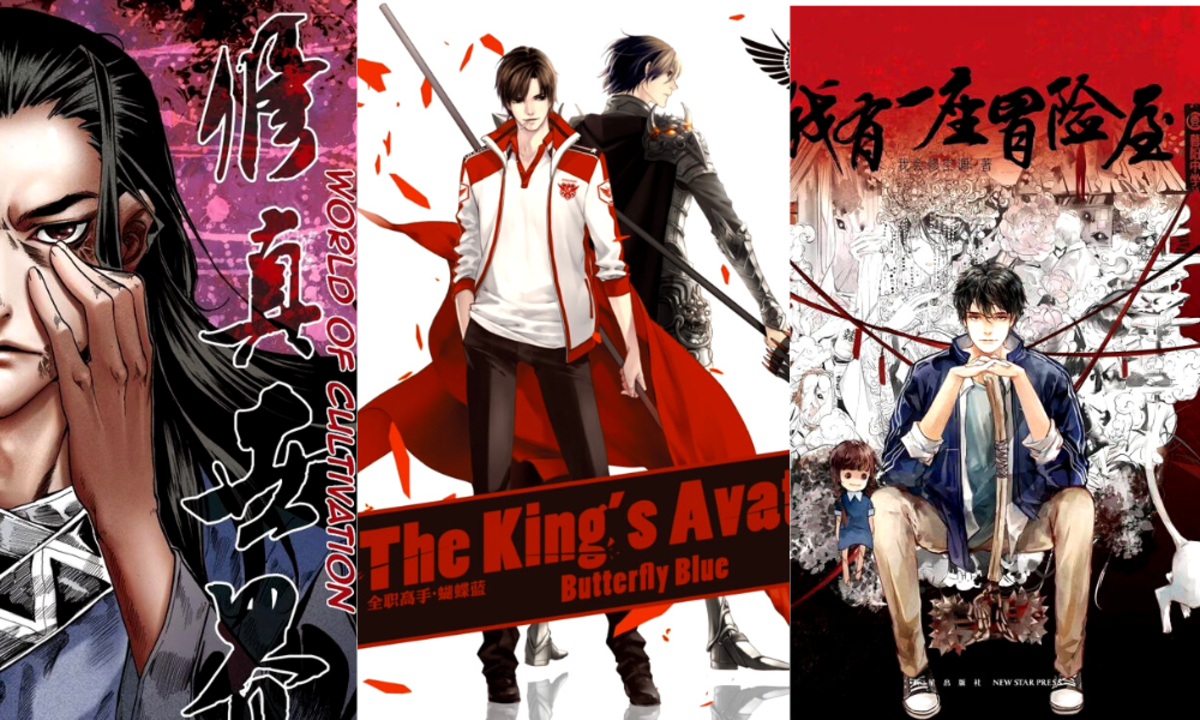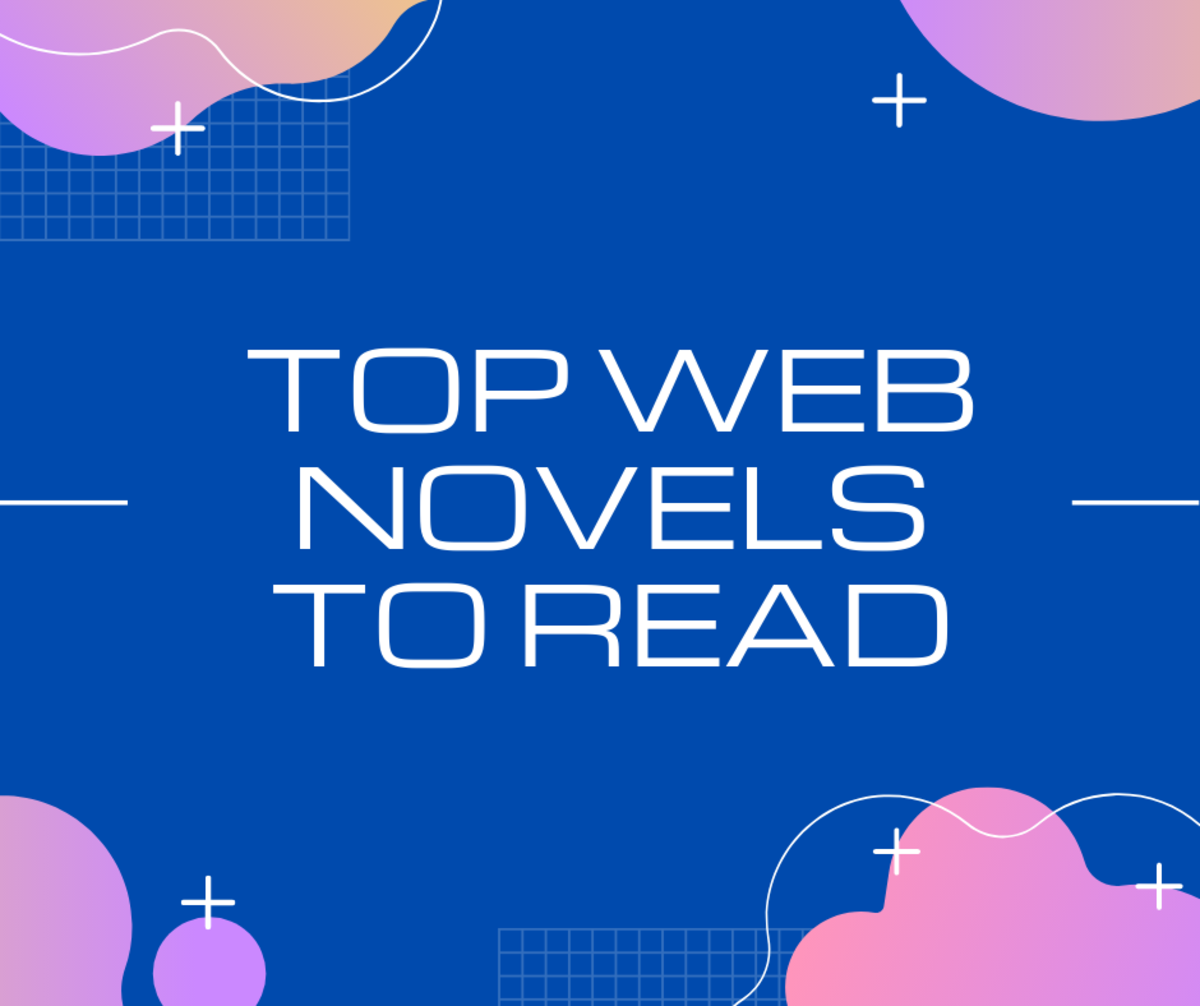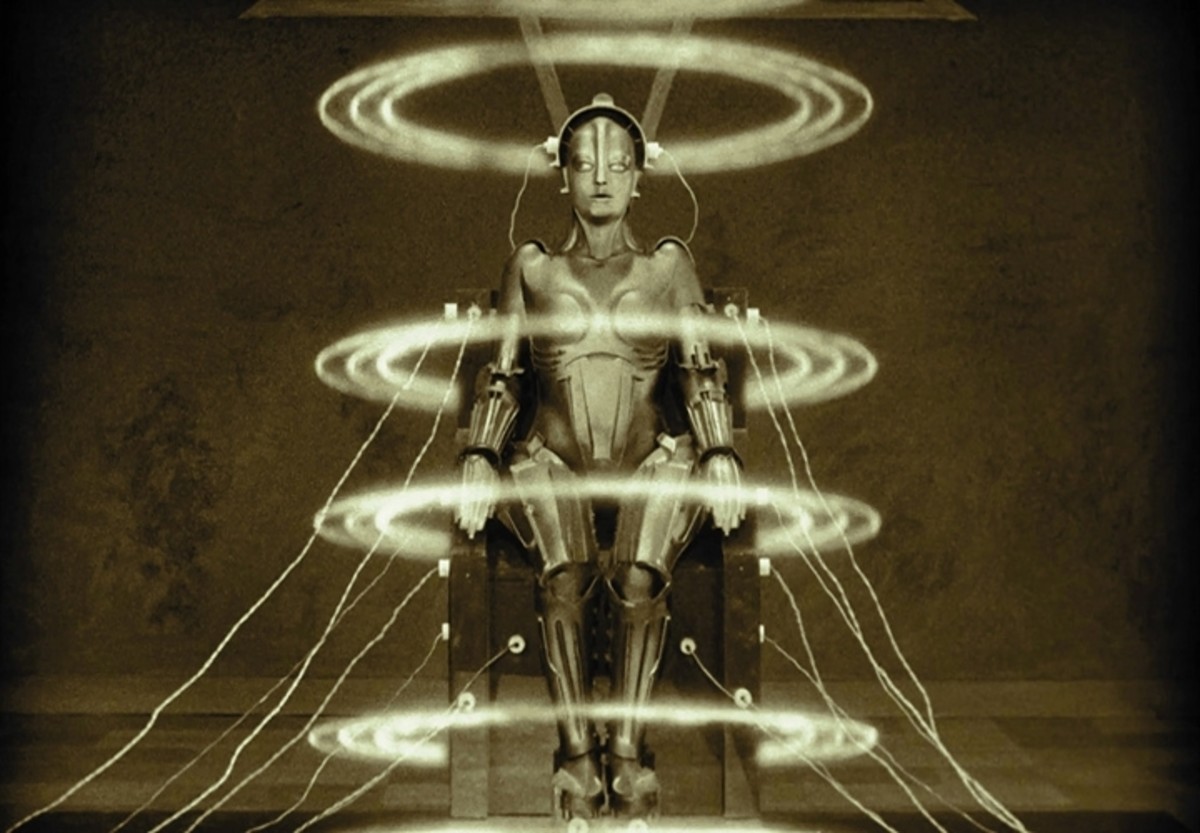Ten Dystopian Novels To Read Before You Die
They were the worst of times...
Dystopian literature often gets over looked by or dismissed by literary types, yet dystopian literature represents some of the best known and most influential novels of all time.
The word dystopia has an etymological root which literally means “bad place” and in literature they are regularly used to show repressive cultures or post-apocalyptic worlds were human civilisation has failed. Often the dystopian culture describes itself as utopian, which everybody believes means the perfect world but which actually translates as “no place”, implying the impossibility of a perfect world existing. The tendency to look at the bleak future of humanity tends to lend dystopian stories to science fiction but the best of these transcend genre and are books that everybody will be able to read.
Below is a list of ten of the greatest dystopian novels that have ever been written which everybody should read before they die. Many of histories greatest authors have not made the list, people such as H.G.Wells, Jules Verne, Kurt Vonnegut and William. S. Burroughs which demonstrates the depth of great novels showing us how bleak our world could become.
Black Dystopia
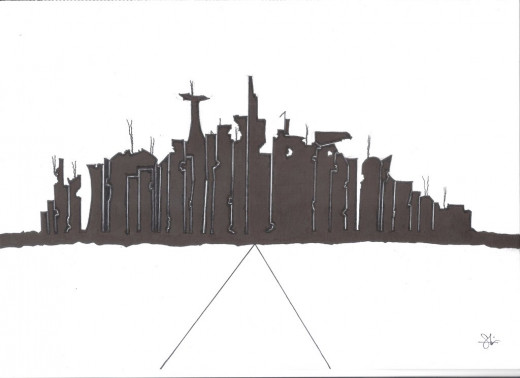
1. The Hunger Games – Suzanne Collins (2008)
The first book on our list is also the most recently written. The Hunger Games is the first in a trilogy telling the story of Katniss Everdeen as she volunteers to be the female tribute from her home district to protect her younger sister from having to go to the lethal Hunger Games. The games are held each year and two tributes are selected from each district to take part in the games, which are shown to all and provide entertainment for the Capitol, the ruling city of Panem. The games are ostensibly a punishment for the districts rebelling against the Capitol, but in reality they are a means of the parasitic Capitol to keep control of all of the districts which produce everything that they consume.
In the Hunger Games the tributes fight to the death with the last man standing and across the trilogy we see how a number of the previous tributes are disgusted after seeing the lives of opulence that those in the Capitol lead while the people in the districts lead lives of hardship and poverty.
Primarily seen as teen fiction The Hunger Games has taken the world by storm with the film enjoying Jennifer Lawrence starring as Katniss Everdeen in a big budget Hollywood quartet. The sheer popularity of the series sees it get a place on this list.
2. Gulliver’s Travels - Jonathon Swift (1726)
First published in 1726 as Travels into Several Remote Nations of the World. In Four Parts. By Lemuel Gulliver, First a Surgeon, and then a Captain of Several Ship our next novel is more commonly known as Gulliver’s Travels.
Gulliver’s Travels is difficult to place in terms of genre and it as, at times, been classified as dystopian, utopian and anti-utopian (the belief that utopia’s are impossible, which given the etymology of the word utopia is something of a redundant position, I believe, as the impossibility of utopia’s is implied in the name). The satirical nature of Swift’s work and the systematic manner in which flaws are exposed in each of the utopia’s he visits place the novel firmly in the dystopian pantheon.
Each of the four kingdoms that Gulliver visits on his travels have dystopian flaws but it is most obvious in the Yahoos who live in Houynhnmland. The sheer savagery of the Yahoos is intended as a reflection of Europeans and their wars in the eighteenth century.
Day of the Triffids
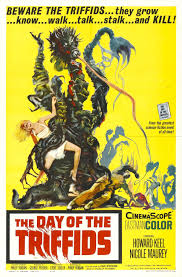
3. The Day of the Triffids – John Wyndham (1951)
The Day of the Triffids is a classic dystopian novel. Written just as the Cold War between the West and Soviet Russia began in earnest, Wyndham predicts with nearly uncanny accuracy both the world’s oil shortage (which they avoid by engineering plants which produce a more efficient oil source but which feed on flesh, have a deadly sting and which can move slowly), and the use of orbital satellites to enhance a countries military capabilities, most famously bought about in real life by the Star Wars defence programme.
In the novel a disaster occurs which leads to the majority of the world’s population being blinded. The protagonist, Bill Masen, is in hospital recovering from a Triffid sting which nearly blinded him and is therefore not affected by the disaster. In the ensuing chaos he is the only one who sees the problems that the Triffids will cause in a world where we have lost our most significant advantage over the deadly plants – our sight.
Throughout the novel Masen has to deal not only with the now dominant plants, but also with various nefarious (and some benevolent) groups who try to take power and reshape civilisation in different ways. Along the way he faces a tragic struggle between his own survival and his responsibility to help others in the dark new civilisation he lives in.
It would be impossible to tell you more without significant spoilers, but The Day of the Triffids is a dystopian novel yet also a novel of hope.
4. Brave New World – Aldous Huxley (1932)
Brave New World in one of the most influential novels of all time, ranking 5th in Modern Libraries list of the 100 Greatest Novels of the 20th Century. Huxley wrote the novel as a satire in response to H.G.Wells more utopian science fiction, saying he had …"been having a little fun pulling the leg of H. G. Wells," in a letter he sent to Albert Goldsmith.
Set in the year 632 After Ford (2540 in our calendar) it follows the story of Bernard, an Alpha Plus male to which the biological conditioning failed, leaving him shorter and less appealing than his contempories. In a world where both physical and psychological conditioning are used routinely to maintain the five social castes (from Alpha to Epsilon) it marks Bernard out as different and undesirable. He is further ostracised because he doesn’t like sports, solidarity service or promiscuous physical relationships. He works as a sleep-teacher, and recognizes that most people believe in what they are told only because of this conditioning. He has one friend, Helmhotz Watson who himself feels himself to be a misfit because he is too intelligent, handsome and athletic.
Huxley’s world is based on Henry Fords’ assembly line idea, with all parts of society controlled and developed to meet needs. Perhaps bizarrely to the modern reader this is offset by using Marxist idea’s to create a false sense of identity in community (I should point out this is very far from the truth of Marxism, the simple hierarchical nature of the society is enough to demonstrate that. The lower castes are developed to have reduced intelligence but ample physical stamina for the obs they are required to do, and any dissent is prevented by the use of social conditioning and the drug SOMA, which induced a euphoric state.
Brave New World is one of the darker novels on this list, but sadly the ideas of thought control and a tiered society with a demonised underclass seem to becoming increasingly likely as time goes on.
No Utopia
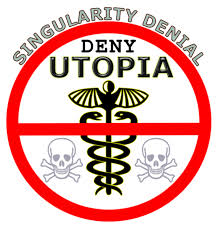
5. Do Androids Dream of Electric Sheep – Philip.K.Dick (1968)
Out of all the books on this list this is perhaps the one that people have never heard of, yet it is a book which spawned one of the finest films ever made – Ridley Scotts’ great Blade Runner.
The novel is set in that most popular of dystopian settings, a post-nuclear war Earth. In this case the war was called the rather apt World War Terminus and it resulted in most of the planets surface being irradiated, which in turn lead to most people and animals dying out. Those that survive are huddled into huge metropolis’s and owning a pet becomes a sign of status.
The main protagonist in the novel is a bounty hunter called Rick Deckard and we follow him as he hunts down six replicants - androids which look like humans and have many human characteristics. Jut like in the film there is an exploration of what it means to be human – the emotional links which separate us from the machines, in particular empathy. This is emphasised by the sub-plot which follows a human with a substandard IQ who chooses to help the replicants in their bid to live.
Tears in the Rain (caution...spoilers...)
6. A Clockwork Orange – Anthony Burgess (1962)
Set in a dystopian future England A Clockwork Orange follows the story of Alex, a sociopathic gang leader who is obsessed with violence, sex and classical music, particularly Beethoven who he refers to as the “Lovely Ludwig Van.”
More correctly a novella rather than a novel, the tale starts by following Alex as he prefers for, and then engages on, a night of violent crime which sees his and his gang kill and rape numerous people before Alex is caught and goes to prison.
A Clockwork Orange was banned in states across America and in many countries internationally for its language and for what some readers believed was the glorification of violence and rape culture, an idea that was exaggerated by the Stanley Kubrick film that was based on the novella. Yet Burgess said that this was a misrepresentation and the novel was intended to explore the Pavlovian conditioning which prevents the genuine exercise of free will. Because of the scope for misinterpretation Burgess came to regret writing A Clockwork Orange – a work considered by many to be his masterpiece.
Burgess asserts that "this title would be appropriate for a story about the application of Pavlovian or mechanical laws to an organism which, like a fruit, was capable of colour and sweetness."
7. Fahrenheit 451 – Ray Bradbury (1953)
A number of the books on this list have been deeply prophetic – but maybe none predicted the insidious way in which popular culture would enable thought control as accurately as Fahrenheit 451.
The novel follows Guy Montag, a fireman who grows increasingly disillusioned with his life after talking to a girl who lives on his block who seems free and happy.
The job of “fireman” has changed – in the novel they no longer put fires out – they are sent to burn books which are accused of being able to spread and encourage dangerous ideas. Montag secretly takes a book at one burning and it leads him to question the foundations of his life. He returns home to find his wife has overdosed on the drugs she takes to keep her happy (rather like SOMA in Brave New World) and once she is saved she doesn’t remember or even believe the incident. She watches dull and uninspiring soaps on a surround screen television (sound familiar?) and believes they live in a perfectly engineered world – a world which Guy is increasingly disillusioned with.
Fahrenheit 451 has been a favourite since its release and has won a host of awards, including being one of only four novels to have been awarded a retro Hugo Award, which it received in 2004.
The novel deals with themes of censorship and thought control and is still alarmingly relevant over sixty years since it was first released.
Big Brother
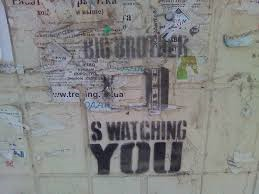
8. Nineteen Eighty-Four – George Orwell (1949)
Probably the most famous book on this list and a book which has introduced neologisms to our language, and ways of understanding power which have filtered down into popular culture. The term “Big Brother” is, perhaps, the best example of a phrase in modern literature which has become naturalised into society, spawning a TV show (please forgive me while I spit…) and if you use the term people will instantly recognise what you mean – watch what you are doing because the powers that be are watching.
Despite the year in the title having passed three decades ago the book remains a deeply dark and prophetic vision which many people increasingly see coming to pass, with not only the use of digital media allowing Big Brother to pry like never before, but the increasing economic segregation into the rich, the haves and the have-nots.
Nineteen Eighty-Four is set in a post global war Earth and follows Winston Smith as he rebels intellectually against the constraints of the society and embarks on an illegal relationship with Julia. He keeps a journal and risks imprisonment or even execution by the appropriately named Thought Police. The novel carries on to tell of his arrest and his “political re-education.”
It would be impossible to tell more without giving spoilers, but of all the novels on this list this is perhaps the most bleak and the most scarily recognisable.
Chad Harbach
” David Foster Wallace's 1996 opus now looks like the central American novel of the past thirty years, a dense star for lesser work to orbit.”
9. Infinite Jest – David Wallace Foster (1996)
Combining a delightfully created capitalist dystopia with post-modernism, Infinite Jest certainly qualifies as a modern masterpiece and Chad Harbach of the journal N+1 wrote” David Foster Wallace's 1996 opus now looks like the central American novel of the past thirty years, a dense star for lesser work to orbit.” High praise indeed.
Set in a world where corporations bid for the right to sponsor years the novel takes place in the wonderfully named Year of the Depend Adult Undergarment and is split largely between two establishments, the Enfield Tennis Academy and the Ennet Drug and Alcohol Recovery House which are separated by a hill in a futuristic Boston. The story revolves in large part around a missing data cartridge which contains the film Infinte Jest, a film so entertaining that anybody who watches is it loses the will to do anything else, ever. A separatist terrorist group is hell bent on getting a copy of the film to use in attacks against the US and the US government themselves are trying to get the master copy to prevent its dissemination.
The novel deals with numerous themes and these bring in numerous characters, although arguably the main protagonist is Hal Incandenza, son of the director responsible for the film. The events of the novel revolve around the time he spends at the Enfield Tennis Academy.
At nearly a thousand pages long and famously including three-hundred-and-eight-eight end notes Infinite Jest is the longest and most challenging novel on this list, but one that is well worth reading for fans of either dystopian or post-modern literature.
The Road
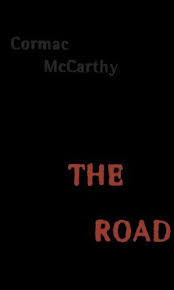
10. The Road – Cormac McCarthy (2006)
Cormac McCarthy is one of the great figures of world literature over the last fifty years, and when he turned his hand to a dystopian novel he did not disappoint. Hardly a prolific writer, The Road became the tenth(and still most recent, although we are eagerly awaiting the publication date for The Passenger) novel that McCarthy had published over a writing career spanning fifty years but like everything that came before it captures the heart and mind in unexpected ways.
Set in North America after an unspecified disaster has destroyed all the arable land and killed the majority of people it follows the tale of a man who is slowly dying and his young son as they quest across the continent in search of food and sanctuary while trying to avoid the few other remaining survivors who are scavengers and cannibals. In the time between the disaster and the time of the novel almost all food and fuel has been used, and McCarthy depicts a barren and derelict world where every scrap of resource can be a matter of life and death. Simply depicted as a story of good vs bad like all of McCarthy’s novels this fails to tell the whole story, as he creates a heart breaking story about trust and innocence against the most terrible backdrop.
The Road received great critical acclaim upon its release and in 2007 it was awarded the Pulitzer Prize for fiction.

